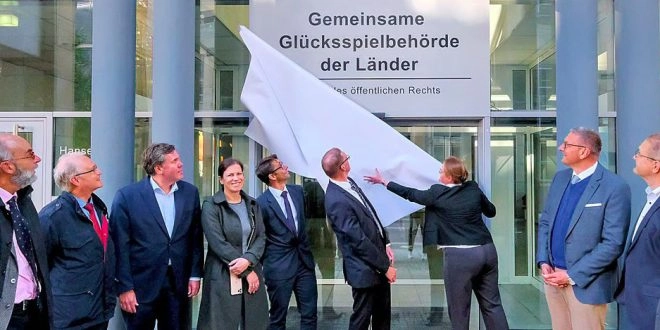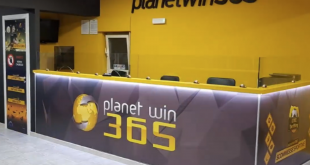Gluecksspiel (GGL), Germany’s new federal gambling regulator, has published its first leadership statement issued by co-Executive Directors Ronald Benter and Benjamin Schwanke.
Commencing a new regulatory era for German gambling, the GGL officially took charge of managing and supervising Germany’s Fourth Interstate Gambling Treaty (GlüNeuRStv) on 1 January.
“We have our finished house and are now able to work”, commented Ronald Benter, who thanked the support of Germany’s 16 federal states to help establish the GGL on schedule.
“This is a remarkable achievement, in that when the new State Treaty on Gambling came into force on July 1, 2021, the establishment of the authority had to be started from scratch.”
It was disclosed that GGL had hired 75 staff as of 1 January, in which it expects to increase its headcount to “104 employees over the course of the year.”
Reflecting on the GlüNeuRStv regime’s interim administrative period managed by the Darmstadt Regional Council as ‘regulatory placeholder’, Benter stated that “good preparatory work had been achieved”.
As such, the GlüNeuRStv online gambling market comprises 38 sports betting licences and 22 permits approved for online games.
Yet, GGL leadership recognises a backlog in the licensing of online games and poker verticals, in which the regulator has received 78 applications but only qualified 25 operators to be on the GlüNeuRStv ‘whitelist’.
Benter cited that the backlog in the authorisation of online games licences was due to operators failing to submit “individual games for regulatory inspection” – a licensing requirement of the GlüNeuRStv regime.
“By the end of 2022, almost 600 of the 3,500 individual game approvals applied for had been checked and approved,” Benter confirmed.
The GGL warned that it would continue to reject individual game applications that failed to meet submission criteria, such as not providing a German-language manual, in which Benter stated that “operators and providers needed to pay more attention”.
Beyond licensing duties, co-director Benjamin Schwanke cited that 2023 would see the GGL take on the “toughtest approach against illegal online gambling operators.”
Prior to launch, GGL is aware of 1,000 websites and 100 illegal marketing campaigns that have targeted German consumers. The regulator has initiated more than 60 prohibition procedures and filed more than 30 criminal complaints in German courts.
Following its regulatory transition, the GlüNeuRStv will become the most “comprehensively supervised market” in which operators must adhere to technical compliances overseen by Germany’s Interstate Gambling Evaluation System (LUGAS).
The GGL has been further strengthened by “additional enforcement instruments” granted by federal states to allow the regulator to order direct IP-blocking requests and payment freezes on unauthorised foreign-based operators targeting Germany.
Schwanke summarised: “We will ensure that it is no longer worthwhile to gamble illegally.”










